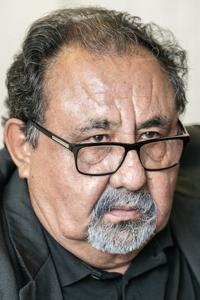Southern Arizona voters have given Rep. Raúl Grijalva — one of the biggest critics of President Trump — a ninth term in Congress.
Grijalva, a Tucson Democrat first elected to the House of Representatives in 2003, had nearly 60.9 percent of the vote, while Republican challenger Nick Pierson had about 39.1 percent in early returns.
It is unclear how many votes had not been counted in Congressional District 3, but it was unlikely Pierson could mount a comeback based on trends in early ballots counted and in provisional ballots.
“It is our turn at the wheel,” Grijalva said Tuesday night of Democrats taking back the House. “Congress will be checking the worst excesses and instincts of the Trump administration.”
In the heavily Democratic district, where 43 percent of voters are Democrats and 20 percent are Republicans, Pierson joins a long line of Republican challengers who have tried to unseat Grijalva.
Pierson attempted early in the race to make it about values, but found himself repeatedly defending his debate comment that Grijalva was a “not a good example of a Mexican-American, and he’s not a good example of an American.”
Labeled as racist by his critics, Pierson told reporters that his comments were taken out of context, and he noted his mother was Hispanic and he has lived in Southern Arizona all his life.
Pierson pointed to a $48,000 legal claim filed against Grijalva by a House committee employee, settled last year, repeating allegations that he was intoxicated on the job.
Grijalva — who is bound by confidential agreement related to the settlement — has said that the settlement isn’t related in any way to sexual harassment.
An ethics investigation, requested by the congressman, ended in a recommendation to dismiss a complaint against him. He has repeatedly denied he was ever drunk on the job.
For his part, Grijalva did not campaign heavily against Pierson. The campaign’s one ad was a low-budget video of him driving around the district. The point of the ad, released on Facebook, was to note that Pierson doesn’t live in the district.
Federal rules do not require that a candidate live in the district before the election, but a member of Congress must have a district residence if elected.
Pierson also struggled to match Grijalva in terms of fundraising.
The Republican businessman raised $59,043 by mid-October, compared to the $632,548 raised by Grijalva’s campaign, records from the Center for Responsive Politics show.




